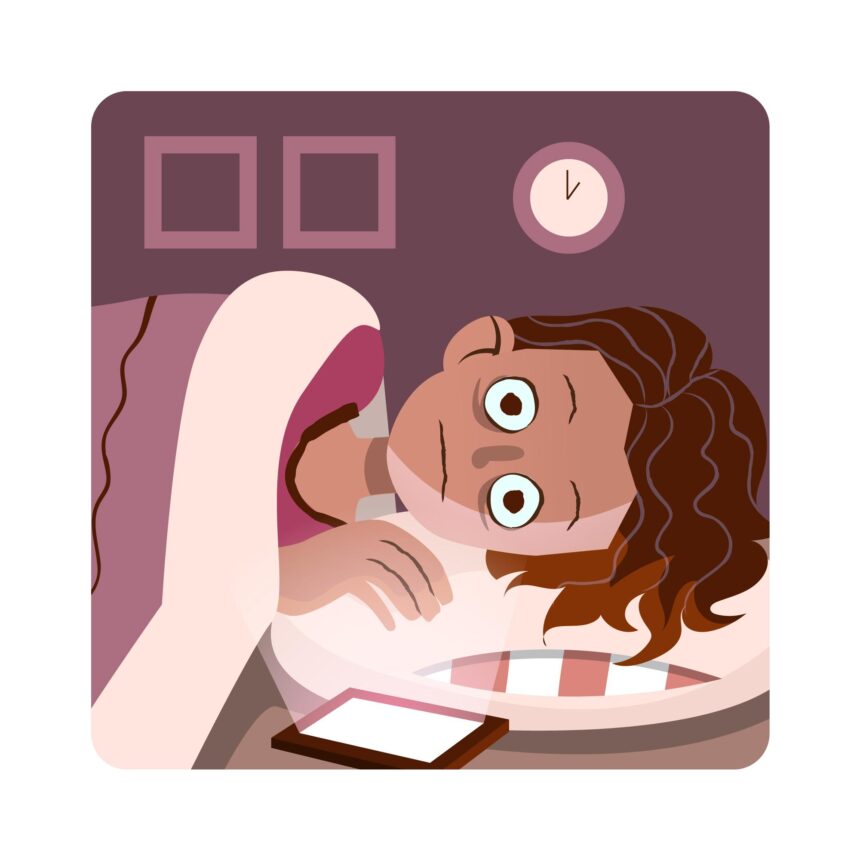Insomnia, characterized by difficulty falling asleep or staying asleep, is a common sleep disorder that affects people worldwide, including South African men. Lack of quality sleep can have a significant impact on one’s overall health and well-being, affecting their productivity, mood, and even relationships. In this South African Men’s Health Guide, we will explore some effective strategies to cope with insomnia and improve sleep quality.
- Establish a Consistent Sleep Routine: Creating a regular sleep routine can help regulate your body’s internal clock and improve sleep quality. Aim to go to bed and wake up at the same time every day, even on weekends. This practice helps train your body to recognize when it’s time to sleep, making it easier to fall asleep and wake up naturally.
- Create a Sleep-Friendly Environment: Ensure your sleep environment is conducive to restful sleep. Keep your bedroom dark, quiet, and at a comfortable temperature. Invest in a good quality mattress, pillows, and bedding that provide adequate support and comfort. Remove electronic devices or use blue light filters to minimize their impact on sleep.
- Limit Stimulants and Alcohol: Avoid consuming stimulants such as caffeine and nicotine close to bedtime. These substances can interfere with your ability to fall asleep and stay asleep. Similarly, while alcohol may initially make you feel drowsy, it can disrupt your sleep patterns, leading to fragmented and poor-quality sleep.
- Incorporate Regular Exercise: Engaging in regular physical activity has numerous health benefits, including improved sleep. Aim for at least 30 minutes of moderate-intensity exercise most days of the week. However, avoid exercising too close to bedtime, as it may make it harder to fall asleep. Allow a gap of a few hours between your workout and bedtime.
- Practice Relaxation Techniques: Relaxation techniques can help calm the mind and prepare your body for sleep. Deep breathing exercises, progressive muscle relaxation, and meditation are effective ways to reduce stress and promote relaxation. Consider incorporating these practices into your bedtime routine to signal your body that it’s time to unwind.
- Manage Stress Levels: High stress levels can contribute to insomnia. Find healthy ways to manage stress, such as engaging in hobbies, spending time with loved ones, or practicing mindfulness. If you find that stress is interfering with your sleep regularly, consider seeking professional help through therapy or counseling.
- Avoid Napping: While short power naps can be beneficial, avoid long daytime naps, especially in the late afternoon or evening. Napping for extended periods can disrupt your sleep schedule and make it harder to fall asleep at night. If you feel the need to nap, limit it to 20-30 minutes and avoid napping too close to your bedtime.
- Limit Screen Time Before Bed: The blue light emitted by electronic devices like smartphones, tablets, and laptops can interfere with your sleep. Avoid using these devices for at least an hour before bedtime. Instead, engage in relaxing activities such as reading a book, taking a warm bath, or listening to soothing music.
- Consider Cognitive Behavioral Therapy for Insomnia (CBT-I): If you continue to struggle with insomnia despite trying various self-help techniques, consider seeking professional help. Cognitive Behavioral Therapy for Insomnia (CBT-I) is a proven therapeutic approach that addresses the underlying causes of insomnia and helps develop healthier sleep habits and beliefs.
- Consult a Healthcare Professional: If insomnia persists or significantly affects your quality of life, it’s essential to consult a healthcare professional. They can evaluate your symptoms, identify any underlying health conditions contributing to your insomnia, and provide personalized treatment options tailored to your needs.
Remember, improving sleep habits takes time and patience. Implementing these strategies consistently can have a positive impact on your sleep quality and overall well-being. Prioritize your sleep and make it a top priority in your journey towards optimal health as a South African man.










